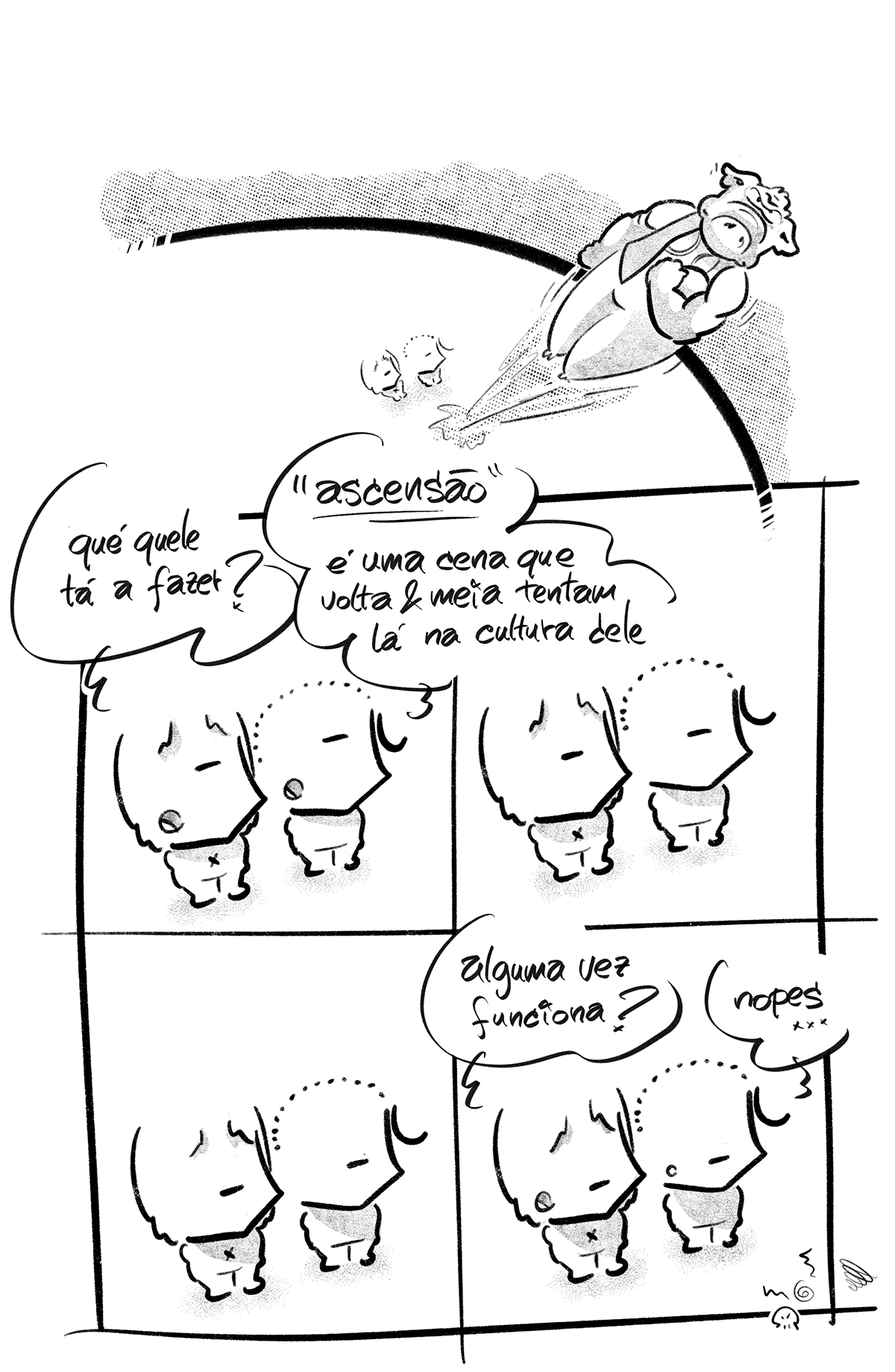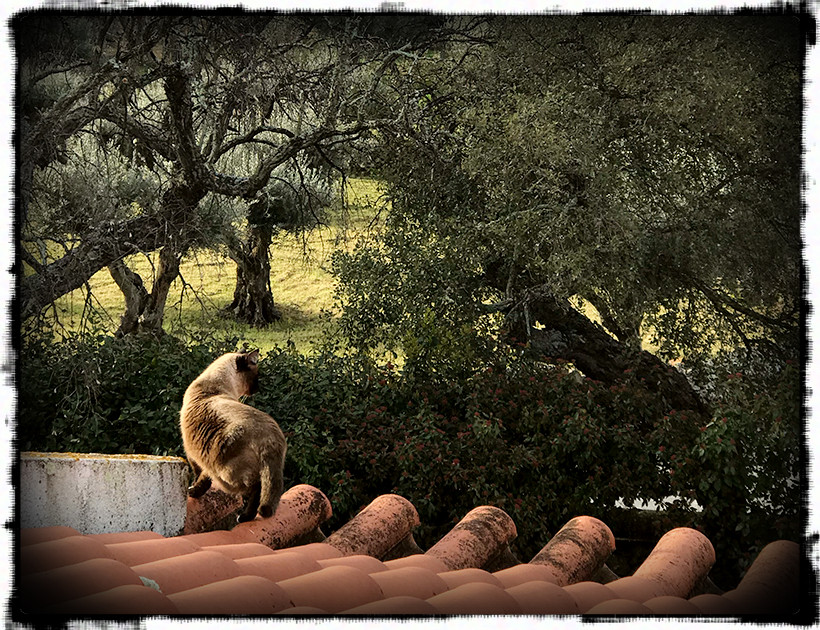o melhor antes do pior
In the future, the only people with the specialized vocabulary and resources necessary to understand, discuss and appreciate Cerebus will be academics and scholars. The series will fade from memory perhaps within our own lifetime. But it will be rediscovered, and it will in time come to be seen as one of the most crucial primary documents of these, our strangest and most interesting of times.
in "Why We Will Read Cerebus" 26 ago 2011
Porque importa? Aos gentios, nada. Mas neste espaço de audiências tão narrow quanto as conseguimos tresmalhar há que passar testemunho d'O Livro de Cerebus aos teens que seguem. Igualmente: começámos este trajecto de viagem com impressão sem forma que nos sentimos obrigados a nomear às musas, embarcando na literatura de época de onde desenterrámos peeves de sempre como o questionar de estudos cómicos cruzados a outro crítico habitual das nossas rotas: coincidências ou andamos às voltas? As gerações por vir que decidam como anda tudo ligado. Segue-se teaser da trilogia "porque e como ler Cerebus / Dave Sim e uma palavra sobre ódio" de Tegan O'Neil:
The series will be a gold mine for critics and historians looking to reconstruct the trajectory of the comics industry in the late twentieth century (...) in a way that no other single text can. People who come to the book in the future will come upon it as if it were already a relic, a text of primarily archaeological interest that maddeningly alternates between a brilliant explication of the comics form and an impenetrable hate-screed.
- Imagine a series that ran from the late seventies through to the early twenty-first century, shipping monthly and taking as its explicit subject-matter the evolution and transformation of the medium in this unique transitional period.
- Imagine a series whose defining relationship to its historical moment is that of parody, and which provides through this parody an incessant commentary on the hoariest and most inane indulgences of surrounding comics culture.
- Imagine a series constructed along the lines of an eclectic personal journal, providing not merely an extended comics narrative but - in the form of copious backmatter - an ongoing critical engagement with itself as well as the larger realities of economic and ethical considerations within the quickly changing medium.
- Imagine one step further, that this series also represents one of the most sustained autobiographical statements thus far produced in the medium's history.
For better and for worse, Cerebus is the grand narrative of comics throughout our lifetime.
in "How We Will Read Cerebus - Part II" 17 out 2011
Voltaremos ao Cerebus no nosso lifetime ao pontuar narrativas — não cremos que nos desviaremos uma linha do que já dissemos antes 6 mar 2012. Entretanto e já que aqui, entre os nossos "impenetrable hate-screed", para arquivo e comparação, O'Neil traça-nos o estado da academia em 2011 (que a páginas tantas entrelaça com "the urgency of Domingos Isabelinho's counter-programming" 26 ago 2011 (*) "Comics’ Expanded Field and Other Pet Peeves" 12 ago 2011, onde este questiona algumas das proposições do meio e expande na ideia do que é ou não comics: divergimos, somos da team massificado-portável e outras noções quadradas). Encurtámos trailer, sigam ligações para o filme completo:
One of the most heartening trends of the last ten-to-fifteen years of comics criticism has been the very gradual assimilation of comics content into academia. We're still in the very early days of this trend, and part of the reason for this is that there is not as of yet sufficient institutional consensus as to where exactly comics belong. My gut feeling is that this kind of conversation would be best served in a portmanteau discipline whose polyglot nature would ostensibly allow for the kind of cross-disciplinary pollination necessary for a field that rightly encompasses parts of Literature, Art History and Cultural Studies while belonging precisely to none. Regardless, the current academic climate indicates that sometime within the next 15 to 20 years we will see the formulation of something resembling a more coherent field of "comics studies" within some corner of the humanities. Once this occurs, the first business of the academics will be to historicize comics history into coherent genealogies. This will require the formulation of more holistic historical narratives to describe the medium's aesthetic and economic origins. Anyone who comes to comics from this point forward will have to do the hard work of reconstructing the medium's historical trajectory. What this means in practice is that all of the particulars of economic production and distribution in the medium will have to be exhumed and reexamined.
in "How We Will Read Cerebus - Part II" 17 out 2011
Estudos culturais com ênfase nos formatos e $$$? Diz que não. Nós andamos a dizer que sim à tanto tempo que deixou de ser engraçado. Diz/graçado, contem connosco para o exumar do meio, reexame dois dedos recto acima nos esqueletos de amanhã.


